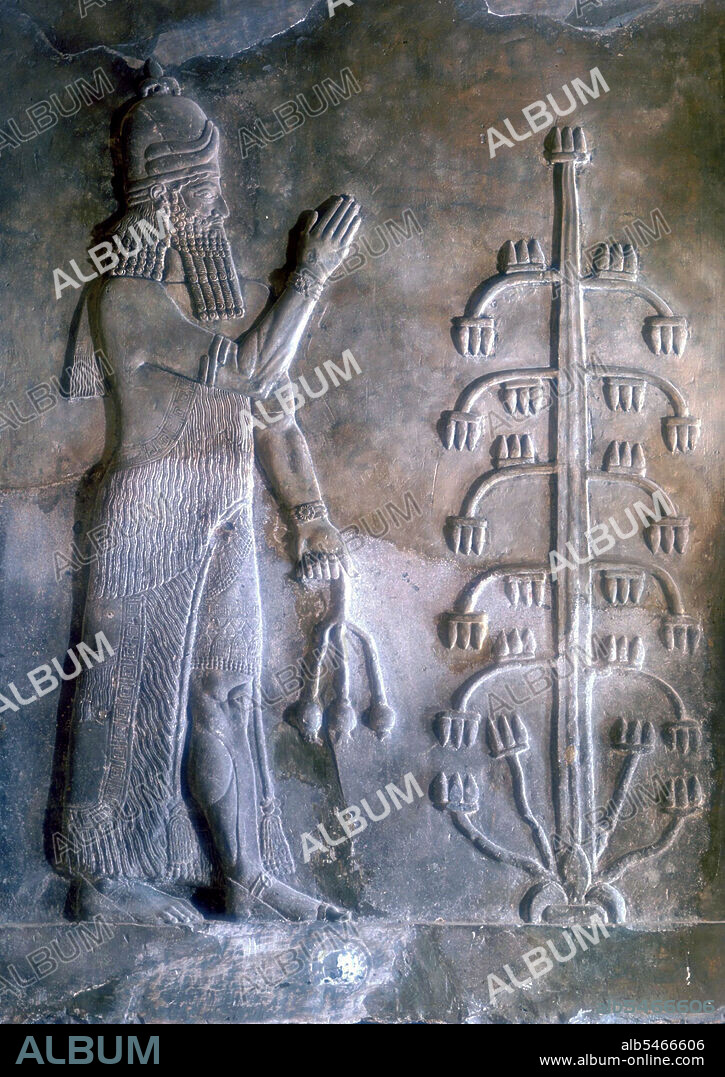alb5466606
Bas-relief of Sargon of Akkad standing before the Tree of Life, Akkadian period, c. 22nd century BCE.

|
Add to another lightbox |
|
Add to another lightbox |



Title:
Bas-relief of Sargon of Akkad standing before the Tree of Life, Akkadian period, c. 22nd century BCE.
Caption:
Sargon of Akkad, also known as Sargon the Great (Akkadian arru-kinu, meaning 'the true king' or 'the legitimate king'), was a Semitic Akkadian emperor famous for his conquest of the Sumerian city-states in the 23rd and 22nd centuries BC. The founder of the Dynasty of Akkad, Sargon reigned in the last quarter of the third millennium BCE. He became a prominent member of the royal court of Kish, killing the king and usurping his throne before embarking on the quest to conquer Mesopotamia. He was originally referred to as Sargon I until records concerning an Assyrian king also named Sargon (now usually referred to as Sargon I) were unearthed. Sargon's vast empire is thought to have included large parts of Mesopotamia, and included parts of modern-day Iran, Asia Minor and Syria. He ruled from a new, but as yet archaeologically unidentified capital, Akkad (Agade), which the Sumerian king list claims he built (or possibly renovated). He is sometimes regarded as the first person in recorded history to create a multiethnic, centrally ruled empire. His dynasty controlled Mesopotamia for around a century and a half.
Credit:
Album / Pictures From History/Universal Images Group
Releases:
Model: No - Property: No
Rights questions?
Rights questions?
Image size:
3500 x 4941 px | 49.5 MB
Print size:
29.6 x 41.8 cm | 11.7 x 16.5 in (300 dpi)
Keywords:
ACCADIAN ART • AKKAD • AKKADIAN • ANCIENT WORLD • ANT. OR.: AKKADIAN • ANT. OR.: MESOPOTAMIA • ANTIGUEDAD • ANTIQUITIES ORIENTAL: MESOPOTAMIA • ANTIQUITIES • ANTIQUITY • ART • ARTS • ASIA • ASIAN • BAS-RELIEF • EMPEROR • HISTORIA UNIVERSAL • HISTORICAL • HISTORY • IRAK • IRAQ • IRAQI • KAISER • KING • LEGEND • MESOPOTAMIA • MESOPOTAMIAN • MONARCH • MONARCHY • RULER • SARGON OF AKKAD • SARGON THE GREAT • SARGON • SCULPTED • SCULPTURE • SOLDIER • STONE CARVING • TROOPS • WARRIOR • WARRIORS
 Pinterest
Pinterest Twitter
Twitter Facebook
Facebook Copy link
Copy link Email
Email

